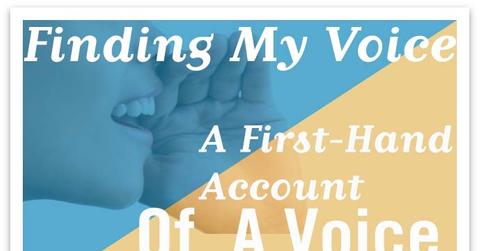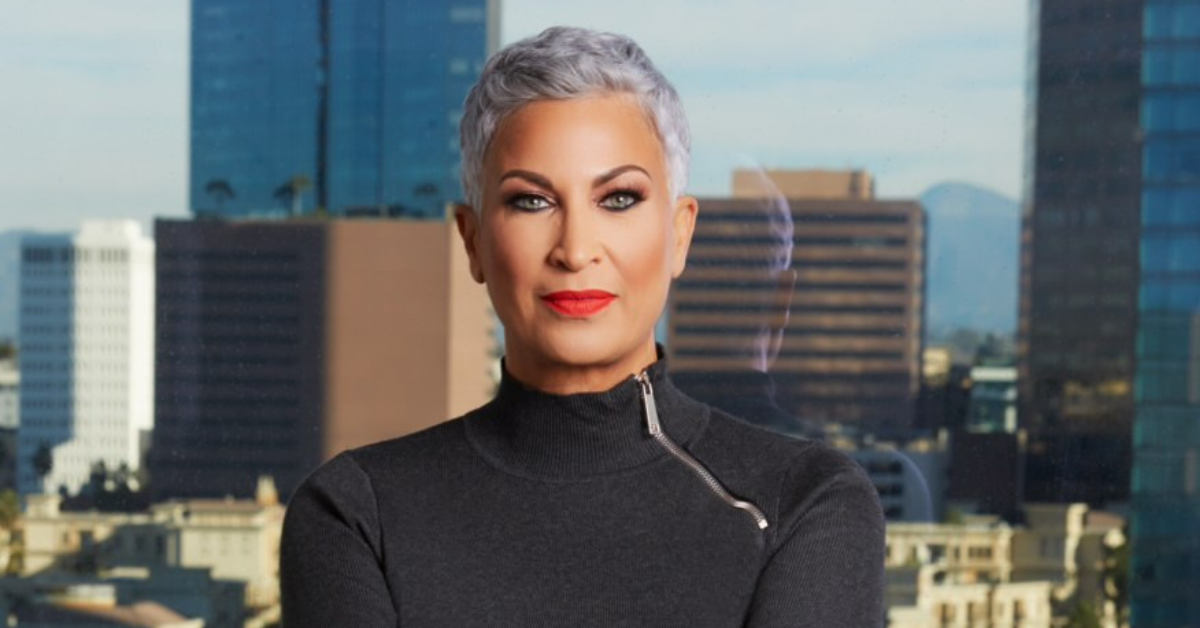Finding My Voice: A First-Hand Account of a Voice Lost and Found

When I read the opening words to Rhonesha Byng’s article, “When The Inner Critic’s Voice Grows Louder Than Your Own,” I began reflecting on how I, myself, have come to find my voice and how significant the experience has been to me. Even though I still have a long journey ahead of me, it is rewarding to look back and see how far I have already come.
I never imagined myself attending a large university, but it happened. During my sophomore year, I temporarily withdrew from Agnes Scott College- a small women’s college in Atlanta- to be closer to home, and in order to keep up with my studies, I decided to take classes at California State University of San Marcos.
On the first day of spring semester, I walked into class, grabbed a seat, and scanned the room. As the class began to fill up, that familiar fear started to creep inside of me.
Byng writes, “…when we are girls, our voices are naturally strong and bold. Speak to any young girl today, she is bold and confident in what she knows about herself.” While this may generally be the case for young girls, my voice was more muted than others at my age. I grew up very quiet and reserved; oftentimes, holding back my words even if I had an opinion. This went on for most of my young life, all the way through high school.
On top of my already shy personality, I typically remained the only black girl in my high school, honors classes, making me stand out even more. I tried to lay low and left the conversation to my fellow peers. Since I didn’t speak up in class very often, I felt even more pressure when it came to presentations. My peers’ ears and eyes stayed glued on me, as they listened to me speak for what was probably the longest they had ever heard.
It’s not that I didn’t want to speak; I’ve always had thoughts that I wanted to communicate. The problem was this- I had the need to feel prepared against these giants- to take my time and phrase my responses word for word. Since then, I’ve realized that it ultimately came down to a fear of failure; I was so worried about making a good impression that I simply chose to be safe and not say anything at all.
It wasn’t until attending college that my quiet voice began to rise. Many of my high school peers questioned my decision to attend a women’s college (all the way in Georgia) but I somehow knew that it was right for me. Agnes Scott College’s undergraduate, student body averages to about 900 students- the perfect size for an intimate education.
In a study titled, “Student Participation in the College Classroom: An Extended Multidisciplinary Literature Review,” Kelly A. Rocca aimed to find the motivation behind student participation in the college classroom.
In reference to the reasons students choose whether or not to participate, Rocca found, “There are various reasons, both speculative and empirically supported, that students fail to participate in class. One reason is class size, with students being more willing to participate…and less likely to be able to ‘hide’ in smaller classes than larger classes.”
The small class sizes have greatly contributed to helping me develop my voice, as they have inherently given me more opportunities to speak. But it’s also more than that. Attending a women’s college where professors are not only excited about what they teach but also hold a sincere interest in the uplifting of young women and their education was the very experience I needed to find my voice.
More than anything, my education has taught me that my opinion matters, and as I have slowly taken the risk of sharing those opinions, I have also realized that more often than not, my professors and peers value the perspective I bring to the table.
Just like Abbey Stone makes note of in her article, “Why Women’s Colleges Still Matter,” I have also been confronted with the question of whether attending a women’s college would prepare me to stand up for myself in the real world. Stone writes:
“The most common criticism of women’s colleges is that they cordon women off in an unrealistic environment, one in which the students have limited interactions with the men they will work alongside come graduation. Attendees of women’s colleges, the critics say, are sheltered and idealistic.”
However, I have had the opportunity to test this first-hand. As I come close to finishing my time at California State University of San Marcos, I find that the voice I have developed at Agnes Scott College has not left me. There is a sense of contentment knowing that I am capable of flourishing at a large university- a feat that would have scared me in high school- and I sometimes question if this ever would have been possible without my time at a small, women’s college.
Each individual has a unique story of how they found their voice. For me, it took undergoing what some people would call a “non-traditional” college experience to find it. While my college experience is not over yet, I am constantly learning more and more about my voice and what I must do to stay true to it. Even further, I am confident that through the years, my voice will only continue to grow, and I never intend on losing it again.





